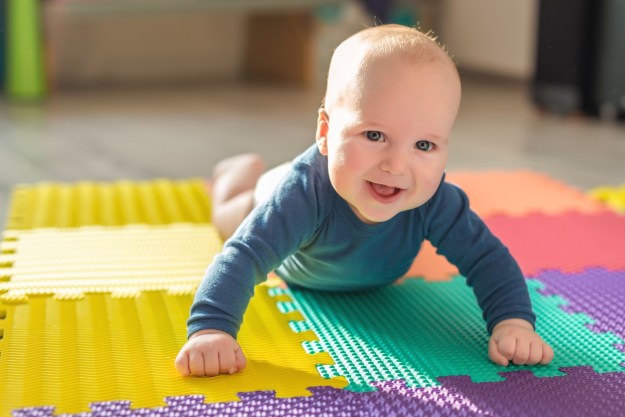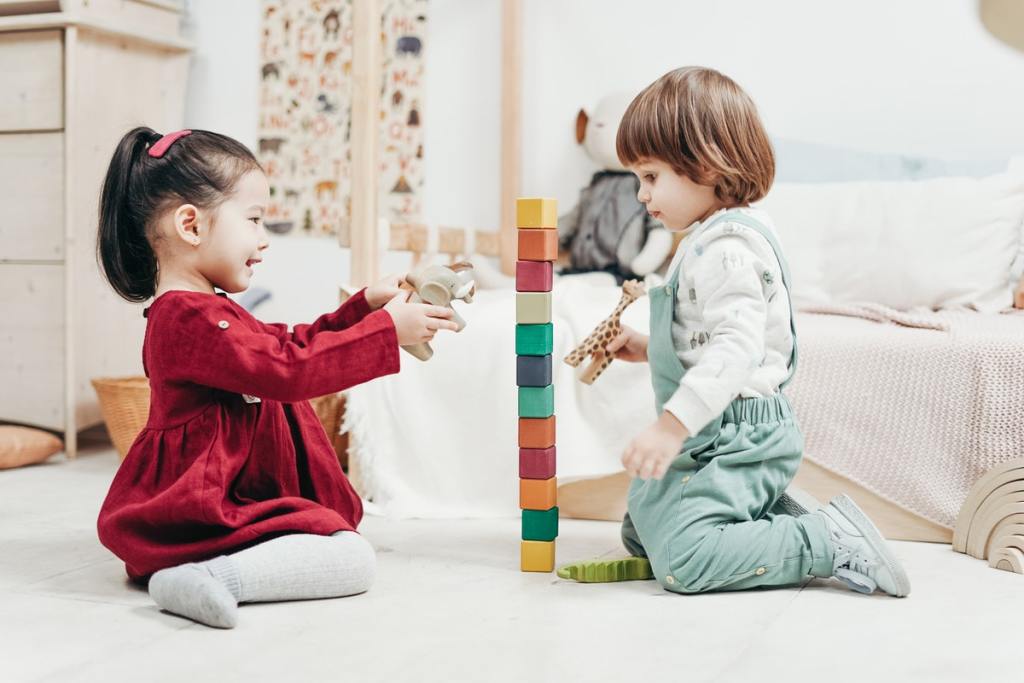
Now that your kiddo is a toddler, it’s time to start planning for those playdates. Playdates are an important part of your little guy or gal’s development. It will help them when it’s time for that first day of preschool. Once you’ve arranged a playgroup or outing with friends for your toddler and it’s officially on the calendar, it’s time to think about what to bring on a playdate. Whether you’re meeting at the local playground or going over a friend’s house to play, we’ve got a list of the essential stuff you won’t want to leave behind, and some you should.
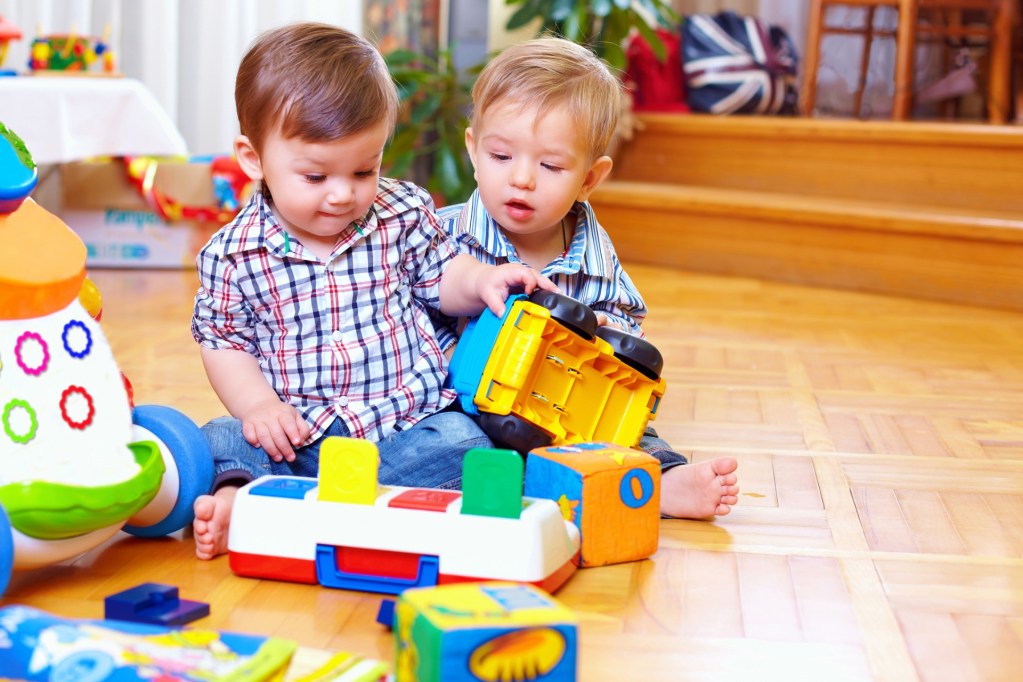
What to bring on a playdate
When it comes to the must-haves for your toddler’s upcoming playdate, here are a couple of items you’ll definitely need, regardless of location.
Water bottles
Staying hydrated is crucial for you and your toddler. So, make sure you have water bottles for the both of you. The days of public water fountains being accessible are gone and besides those were a bacteria fest anyway. Bring your own water bottles so you don’t have to spend unnecessary time and money looking for water to purchase.
Pack the snacks
If you’re going to someone else’s house for the playdate, that parent will probably provide snacks. There isn’t any guarantee your toddler will like them though. Rather than letting your kid go hungry and then have a meltdown, bring your own snacks. You don’t need to pack a ton of options, especially if the playdate is only a couple of hours. One or two containers of their go-to is plenty to have on hand. If you child has food allergies, you should always bring snacks for them.
Toys to share
When your toddler goes to meet friends, they’ll want to play with everyone else’s toys — but they may want to share some of their own, too. Just in case, pack a few of your little one’s toys. he or she won’t mind sharing. That’s part of the learning experience of a playdate.
In an outdoor setting, be cautious of tiny toys that might get lost or left behind. Instead, opt for larger toys your toddler won’t be able to bury in the sandpit. Before you leave, don’t forget to double-check that you have them all. In large groups, it’s easy for your toys to get mixed in with someone else’s or to bring home more than you brought.
Small first-aid kit
There’s always band-aides around at home, but not necessarily on the go. When you’re headed to a park playdate, someone is inevitably going to need a band-aide. A small first aid kit in the diaper bag is a must-have.
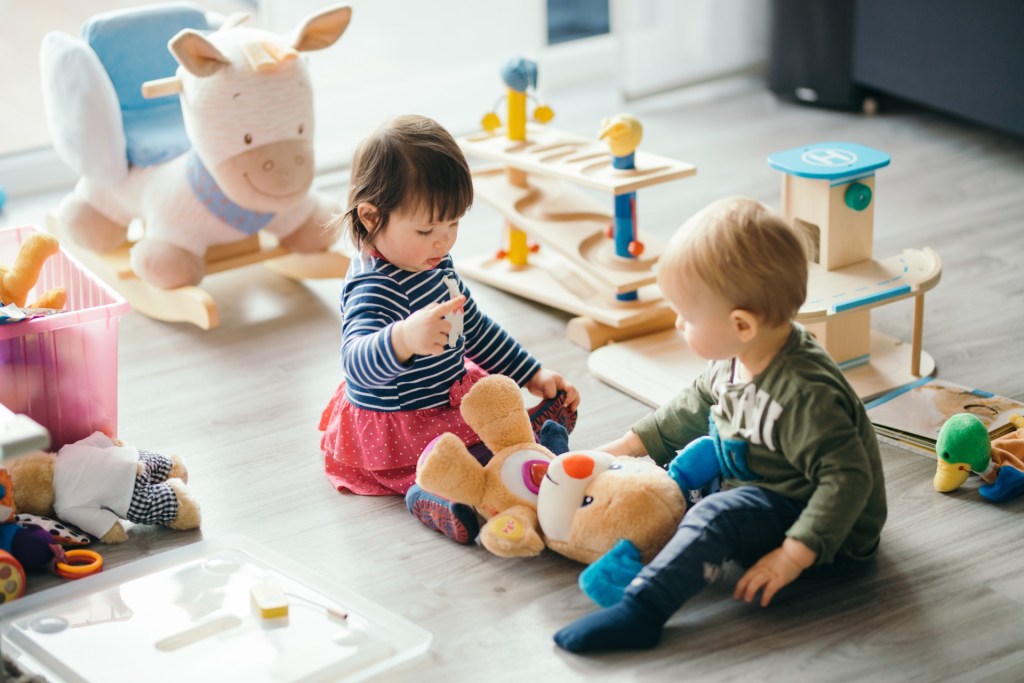
What you shouldn’t bring
Just like heading on vacation, when it comes to the kiddos, there’s always the tendency for parents to overpack. When you’re going on a playdate, stick to the essentials and leave these things at home.
Entire meals
A couple of snacks that conveniently fit inside your bag are fine, but there isn’t any need to bring an entire meal for your kiddo. Playdates should be scheduled around meals and naptimes anyway.
Pets
If you’re headed to the park, it might seem like a great idea to bring the family dog along, but you might want to think twice. If you haven’t cleared it with other parents, they may feel uncomfortable, especially if you have a gentle giant. Bringing animals around small children can be risky since even the friendliest dogs or cats can have unpredictable reactions.
The main reason to leave your fur baby at home is pet allergies. If someone’s child is severely allergic to dogs, your pet’s presence could ruin the entire playdate. On that note, if the playdate’s happening at your house and you have pets, don’t forget to ask if the other kids have any allergies before opening your house to the playgroup.
Electronics
Toddlers should have limited access to smartphones and iPads. So, when you have the opportunity for your toddler to have a playdate, leave the electronics at home and tucked away in your bag. The important part of a playdate is the interaction between the participants. Toddlers are easily distracted and won’t want to play with each other if the lure of an iPad or smartphone is nearby.
Favorite toy or blanket
Many kiddos have a special toy or blanket they derive comfort from. Playdates are about sharing, but it’s okay for your toddler to not want to share the teddy bear he or she sleeps with every night or a cuddly blanket. Leave those treasured toys that are your toddler’s absolute favorite at home. Instead, bring toys along that they won’t mind having other kids play with for a while.
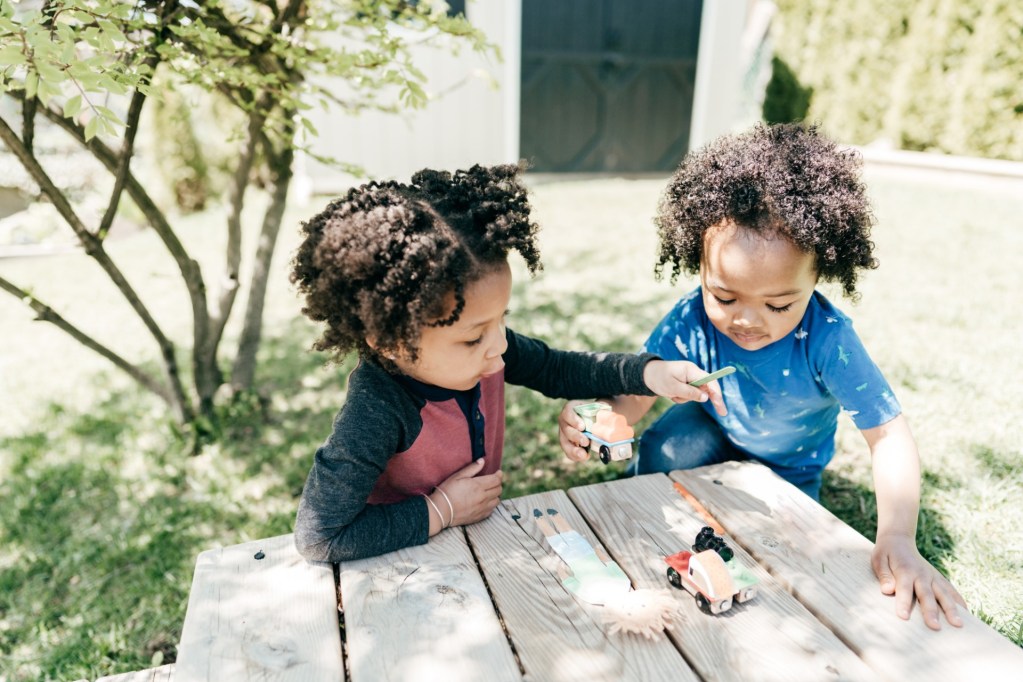
Enjoy the playdate experience
Knowing what to bring on a playdate helps to make the experience more enjoyable for your toddler and you. Learning playdate etiquette isn’t always easy, especially if you’re a first-time parent or arranging the date with someone new.
Toddler playdates are a fun way for your kiddo to find a friend, and maybe you can find a new one, too. As with anything parenting, it’s best to come prepared. Knowing which items you’ll want to keep close at hand and which ones you should keep at home will have you one step closer to a more relaxing playdate for you and your tot.
Editors' Recommendations
- How to play hopscotch (plus 5 great variations)
- The best outdoor games for kids – try these fun, classic activities
- Plan a great family road trip: The best aquariums in the U.S. for kids
- 4-year-old birthday party ideas: 7 low-stress themes your child will love
- Healthy extracurricular activities kids and teens should explore
